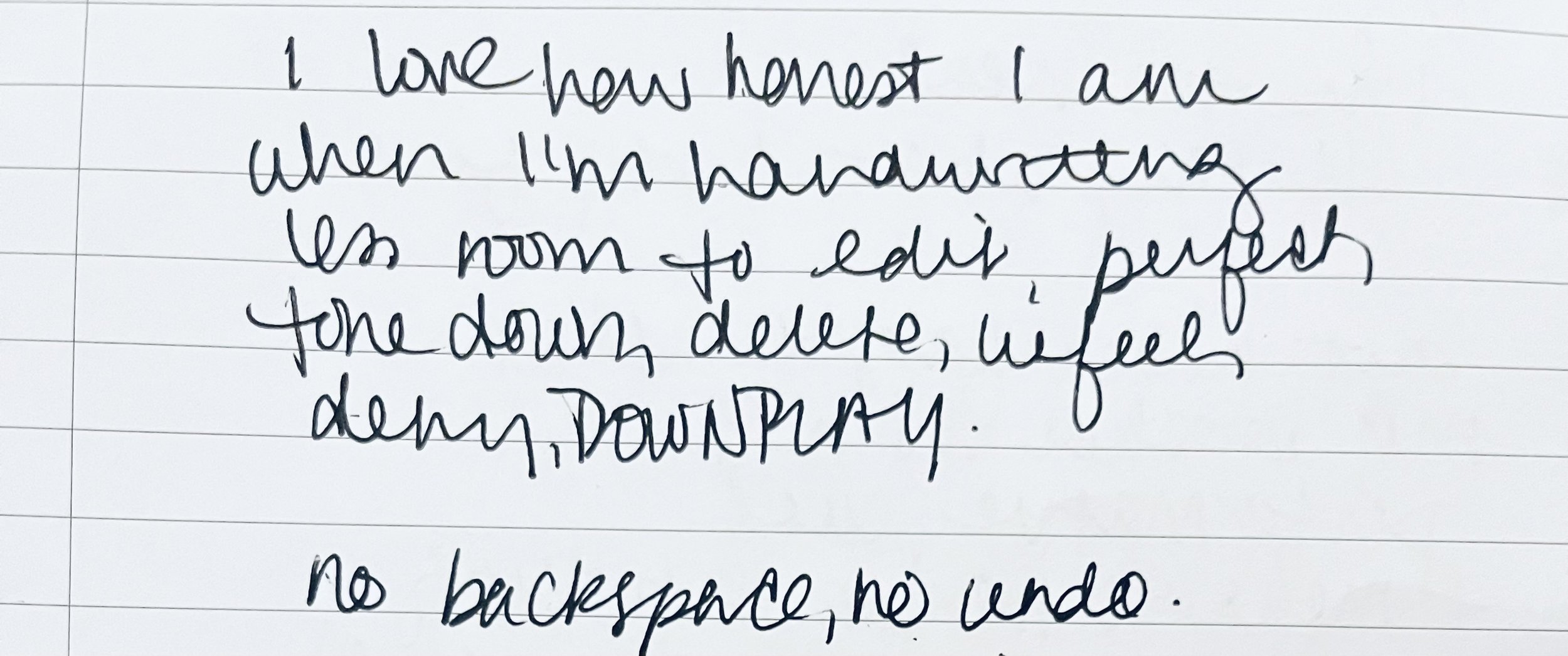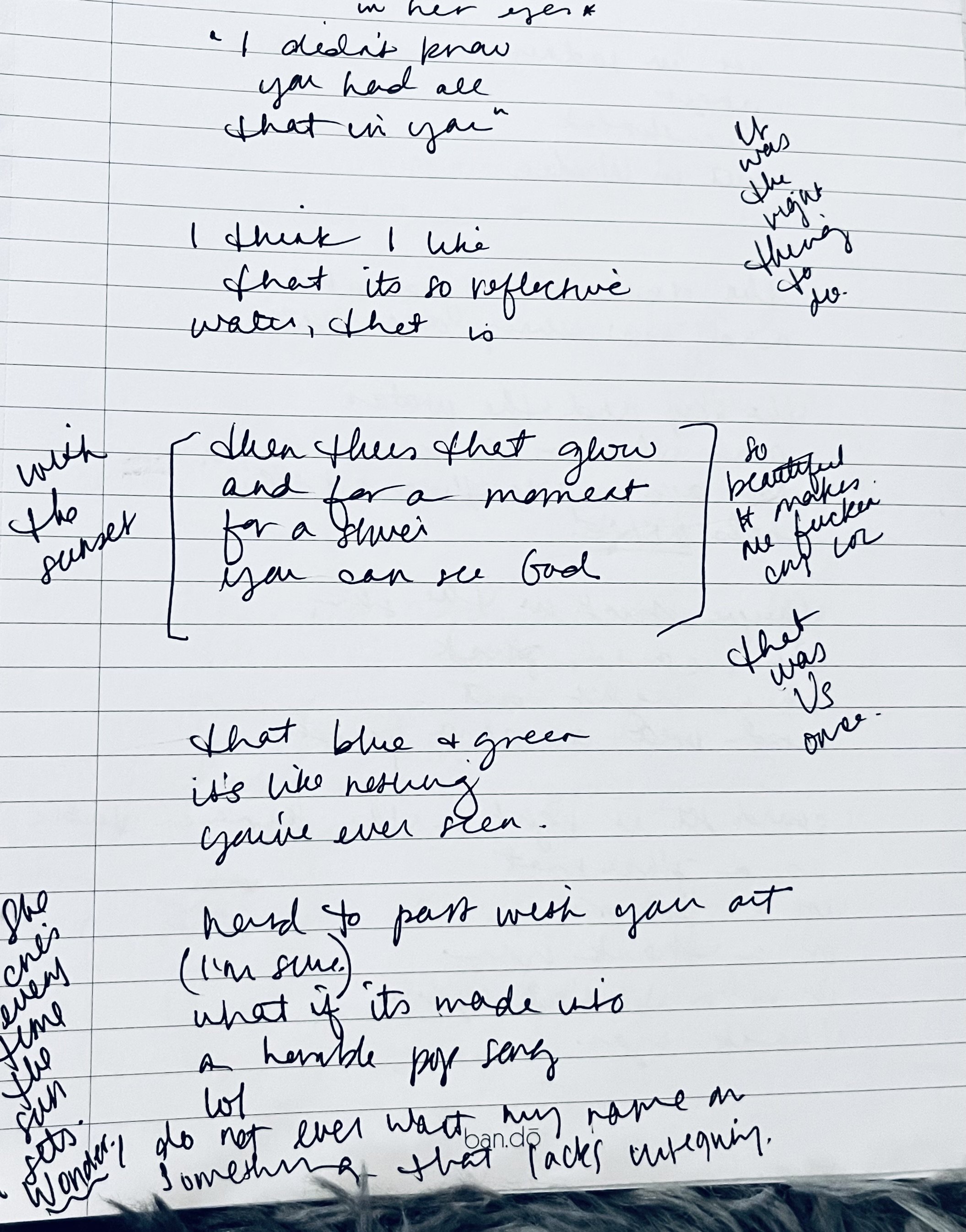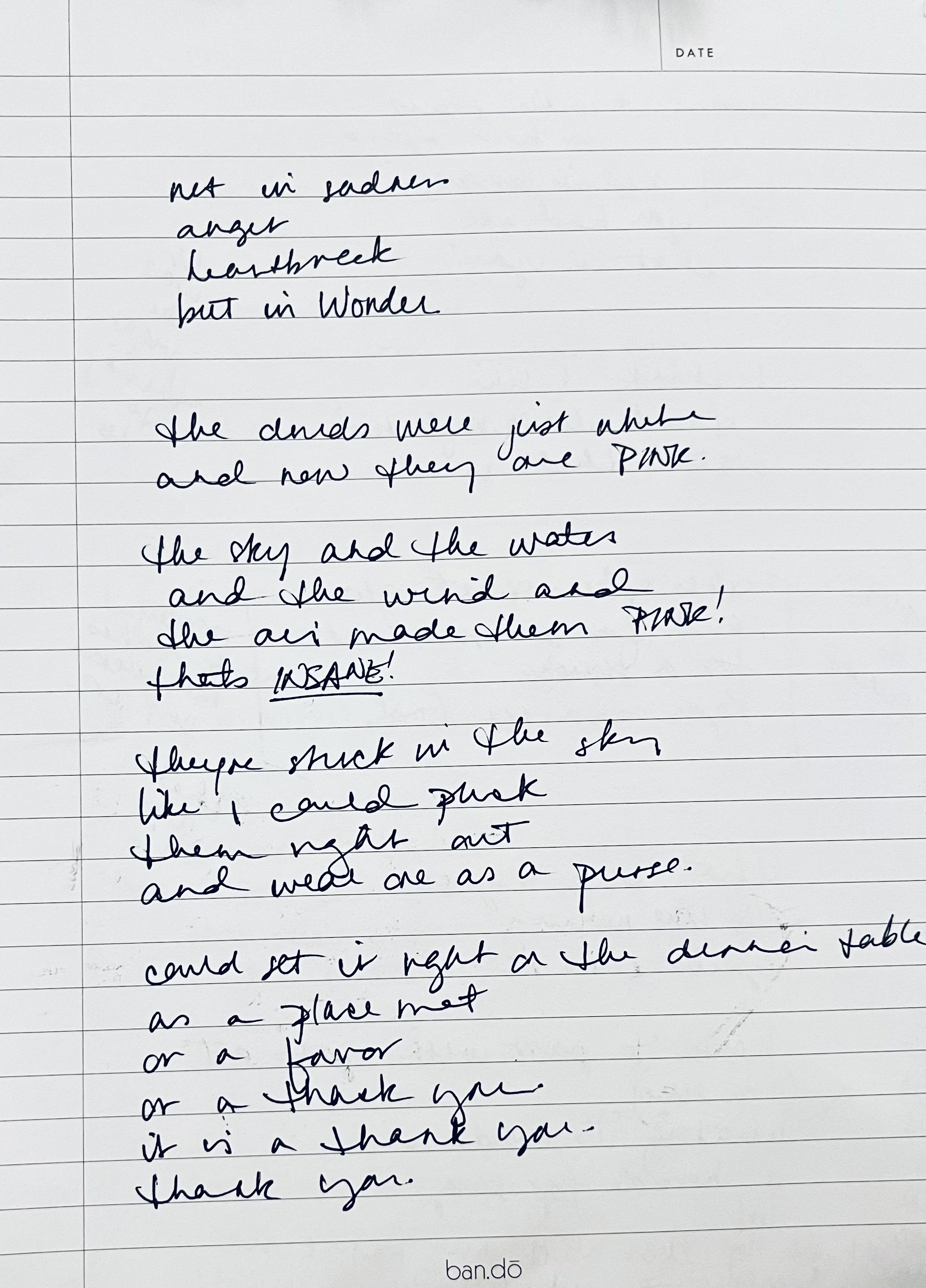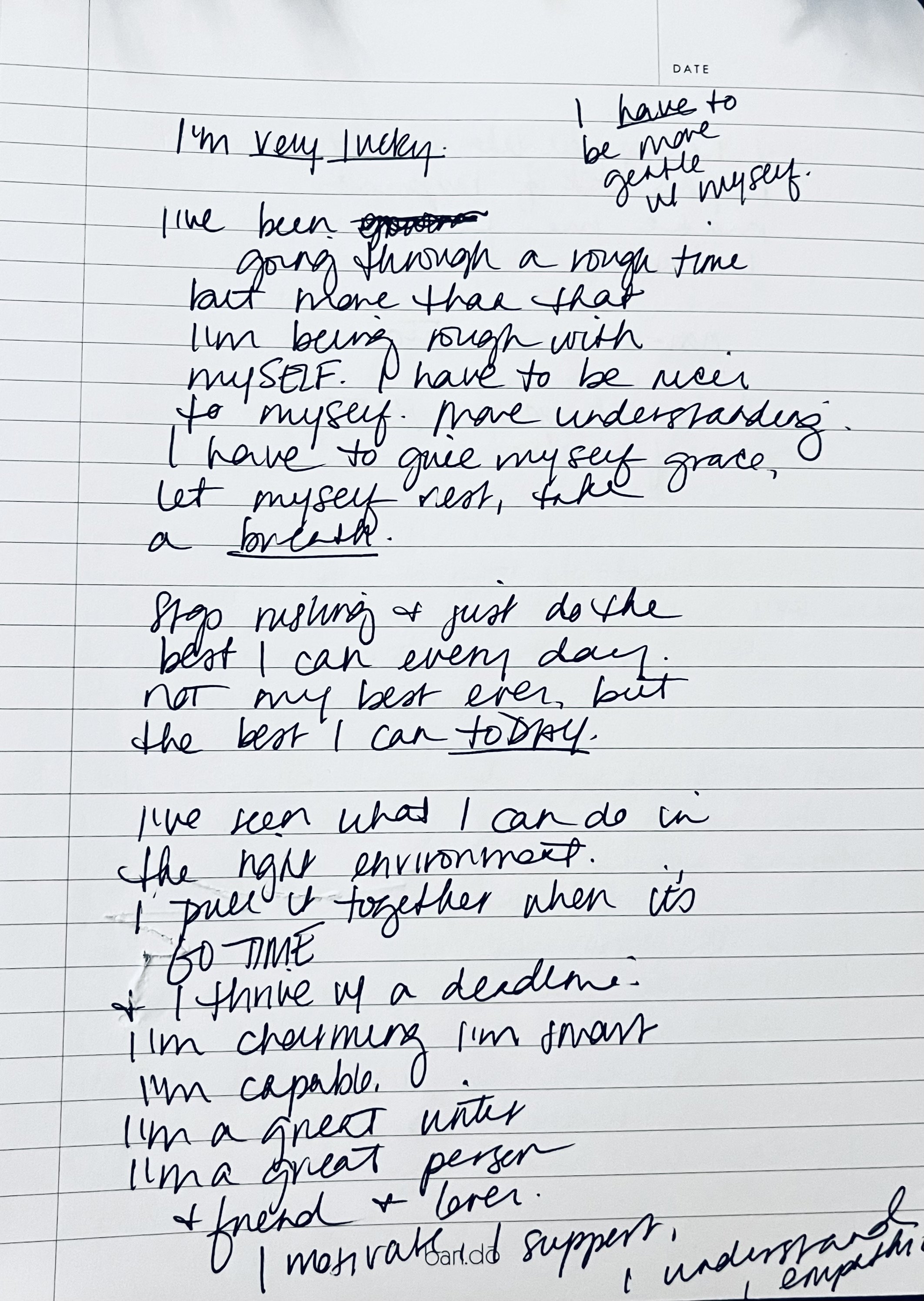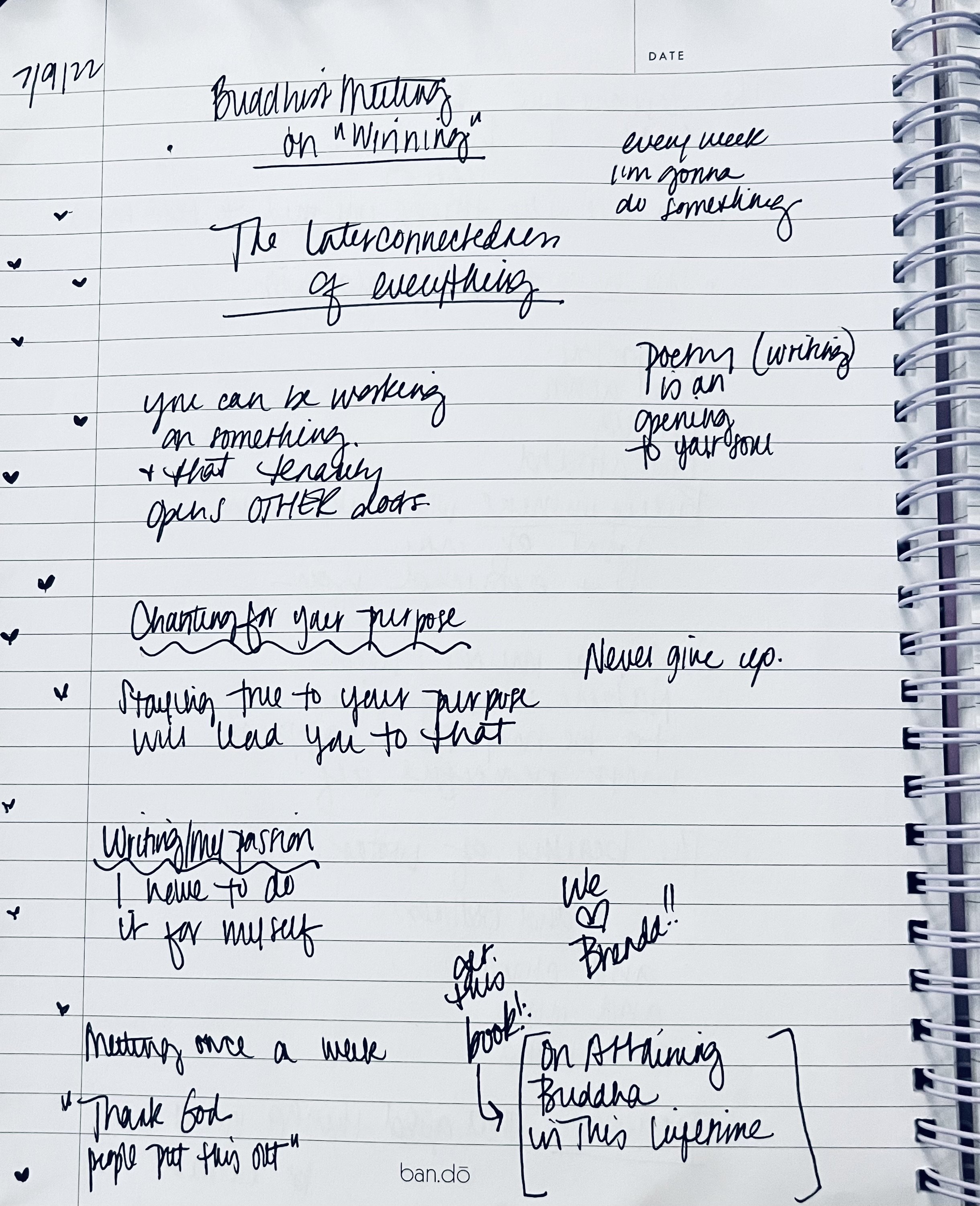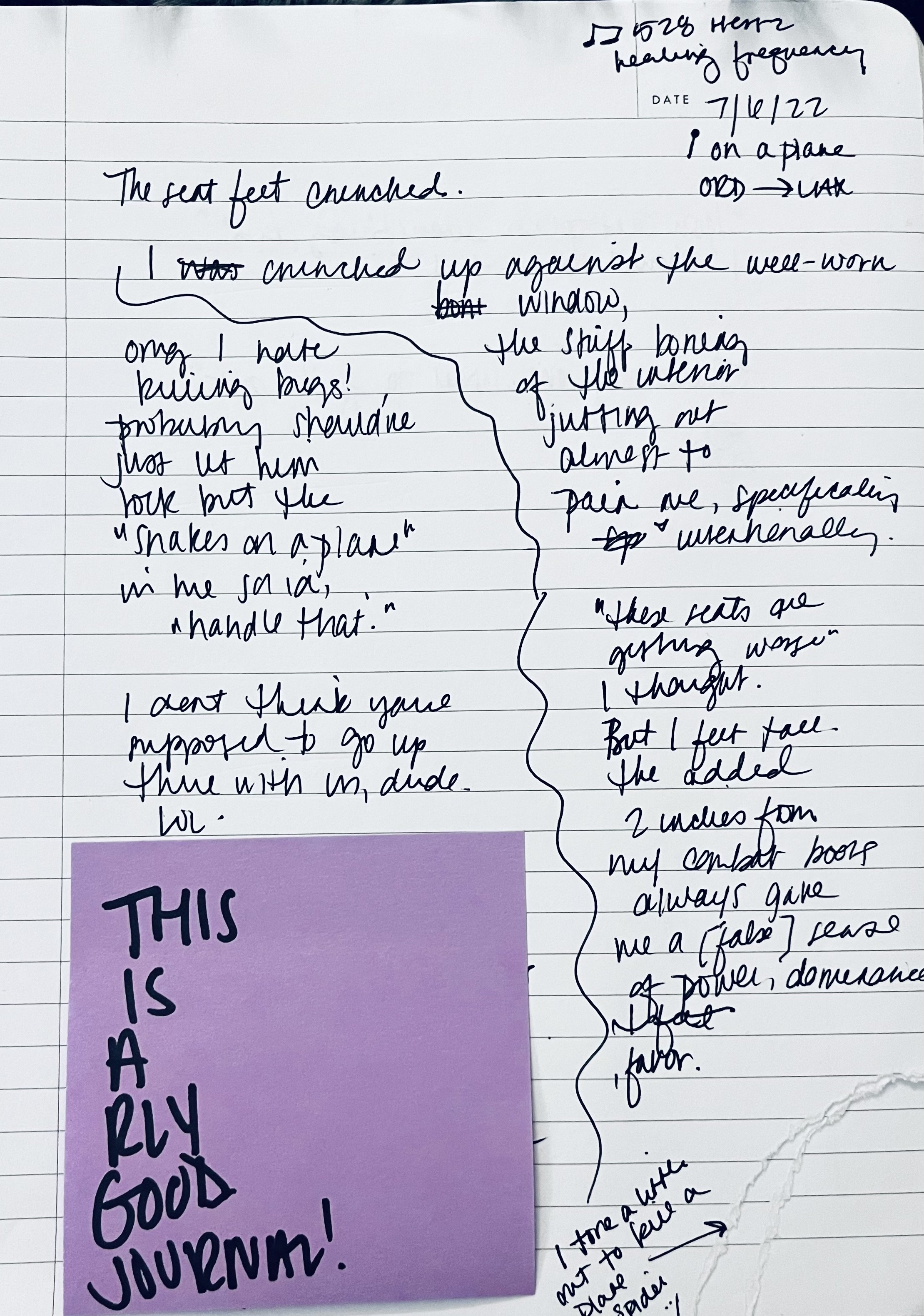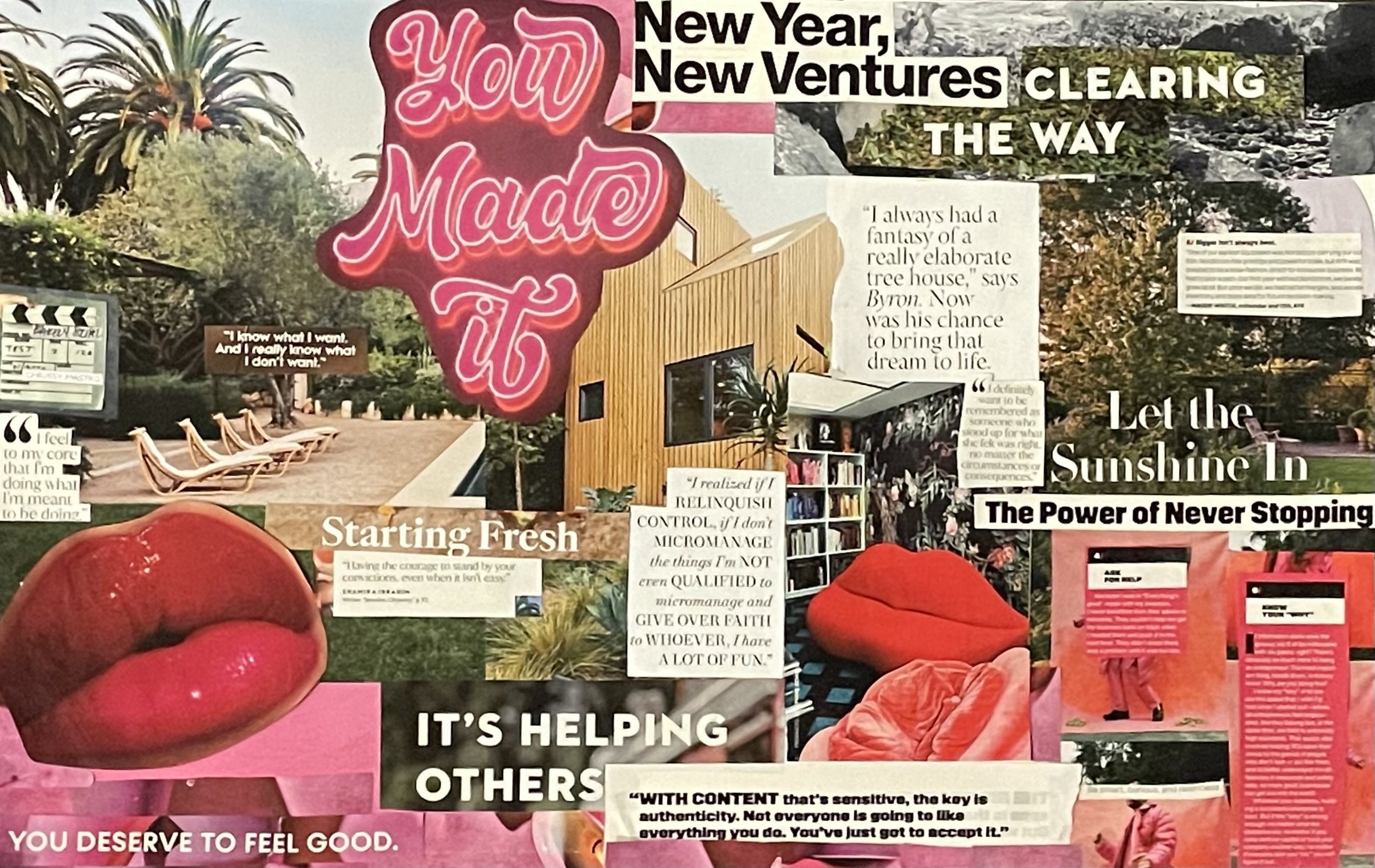a re-introduction
hi babies. thank you so much for entering this space and I hope it finds you well (lol, fr though). i’ve added some hand-written entries from my IRL journal/diary from July below. we know i’m a tactile, analog girl, and hand-writing feels most authentic and honest to me when i’m sharing my thoughts. (excuse my hand-writing—sometimes even I have trouble reading it lol)
I have some more entries that i’ll add once I’m feeling safer and more open, but thank you for being here.
be nice, be kind, be gentle. (with yourself and with others)
love you.
8/2 (again) <3
8/2
growth
8/1
quickie
7/28<3
📍: my rooftop
🎵: This is Love - Khari Mateen (from the Really Love Original Motion Picture soundtrack)
OK THIS DAY was so good. New Moon in Leo, I spent the whole day with my phone out of sight. Reverse-engineered The Way We Were, finally watched Really Love and, really loved it 🥹 (I’m writing a romance feature rn so i’m studying structure heavy), and then caught the most amazing almost-neon sunset. I saw the glow in the corner of my window a few minutes before, and ran up to the rooftop of my building to watch it set.
lol my handwriting in the dark and without my glasses on (as seen above and below) is so wildly different than when i’m focused and in the zone.
7/26 (again)
📍: my living room
🎵: doubt.
7/26
📍: the couch
🎵: finally quieting the very loud anxiety in my head I keep getting right when I wake up
7/25
Gratitude & a reminder be gentle with myself
7/13
📍: my living room
🎵: Chani’s Week Ahead astrology podcast
7/12 leaving LA </3
📍: LAX/airplane
🎵: silence, by way of my noise-cancelling headphones
"you write like a girl in love"
📍: yoko’s living room, Los Angeles, CA
🎵: the dull roar of the TV and musings from my best friends who i’ve missed very much
7/9
📍: yoko’s living room, Los Angeles, CA
🎵: her buddhist meeting on zoom
7/6 ✈️ LAX
📍: in flight entertainment
lol covering up sensitive information w/ a post it note
Just Keep Your Hand Moving
A few years ago, I decided to really heavily commit to my craft for the first time. I had always been a writer, always been good with my pen, always told that I had a gift.
Sometimes I wish I had started and really committed to being a Writer with a capital ‘W’ earlier, but I don’t like to dwell. Everything happens exactly as and exactly when it should. Plus, an adolescence and early adulthood full of slacking off in order to pursue getting into trouble and having fun with my friends has given me a lifetime of writing material. And for that, I am very thankful.
But a lifetime of writing material and “good ideas” brewing in my mind, a rusty right hand and an underdeveloped writing muscle, and the gift and curse that is ADHD, I found myself with a paralyzing anxiety and indecision about what idea to pursue first, and on what medium. Overwhelmed doesn’t even begin to explain how I felt about getting my ideas from my overactive mind all the way onto the page. I remember worrying most (and I still do, from time to time) on which idea to pursue first. Where to start. I had a few really good ideas for funny TV shows, I had a concept for a drama series, or maybe it could be a novel, or is it too early to write a memoir? And why would anyone buy my memoir anyway? Maybe I should write a TV show first, or become known as a comedienne so that people would buy a book of essays like I bought Mindy Kaling’s, or Tina Fey’s, or Amy Poehler’s.
I kept hearing the voices of family members and friends who had ridiculed me for “never finishing anything.” My most commonly occurring anxious thought even to this day when it comes to my work is that I won’t finish things; that when I die I’ll just have scraps of paper with “brilliant ideas” and halfway finished pilot episodes to show for myself. But now, I see that as a challenge, not a curse, and I love me a challenge.
So eventually, push came to shove, and I found myself simply googling something like, “How to organize your ideas as a writer”. Surprisingly enough, I found the most useful tips & resources on Pinterest (another post on this coming soon), but I also found lists upon lists of books by writers (obviously) about writing.
The first book I picked up when I decided to really dig in (I swear the pun was a happy accident lol) was Writing Down the Bones: Freeing The Writer Within by Natalie Goldberg. Writing Down The Bones taught me the importance of just writing—really and truly writing. Her prose also reminded me (and continues to remind me) that I am a writer. That it’s engrained within me, that it’s in my bones. The power of a 20-minute free write, where you just write, and don’t allow your mind to stop your hand from touching the page. Not to delete, not to edit, not to pause and overthink.
It means a lot when I’m reading about or talking to an artist, and we’re on the same page (again, I swear, my mind just thinks in puns naturally lmao). It’s confirmation that I’m more of an artist than a non-artist, despite what I convinced myself over and over again long ago. Shuts my imposter syndrome right up.
Some golden advice from Natalie Goldberg’s Writing Down The Bones: Freeing the Writer Within:
“Naturally, once you begin writing you might be surprised where your mind takes the topic. That’s good. You are not trying to control your writing. You are stepping out of the way. Keep your hand moving. The rule for writing practice of ‘keeping your hand moving,’ not stopping, actually is a way to physically break through your mental resistances and cut through the concept that writing is just about ideas and thinking. You are physically engaged with the pen, and your hand, connected to your arm, is pouring out the record of your senses. There is no separation between the mind and body; therefore, you can break through the mind barriers to writing through the physical act of writing, just as you can believe with your mind that your hand won’t stop at the wood, so you can break a board in karate.
And a mini list of writing topics that I highlighted and always come back to:
Write about the quality of light coming in through your window. Jump in and write. Don’t worry if it is night and your curtains are closed or you would rather write about the light up north—just write. Go for ten minutes, fifteen, a half hour.
the stars
the most frightened you’ve ever been
the closest you ever felt to God or Nature
2022 Moodboard…so far
yup, I know it’s blurry. nope, I don’t care.
Reading About Writing
I’m loving Bird by Bird lately, a gift of a book given to me by a very thoughtful friend.
I used to feel a tinge of imposter syndrome when people would ask me what my favorite books are. I read all the time, but it tends to be non-fiction; reading about writing, in particular. The appeal, I think, is the tips and tidbits that I can use in real time, that day, if I so please.
But though I read all the time, I felt a pressure to answer the question of “who’s your favorite writer?” with one of the “greats”, and I don’t often read “one of the greats.”
Who’s my favorite writer? Frank Ocean, to be honest. lol.
I’ve been feeling called to write blog posts lately, if for nothing else, for myself. To help track my process and my journey and have somewhere to organize my thoughts. To hold myself a little bit accountable. But also to help other people who are on similar journeys as mine…who need a little bit of guidance with their writing processes. I’m really into the whole “being the me I wish I had” thing…it’s what drives me.
I can’t guarantee how frequent they will be (i’m a little moody—seasonal depression is really trying to kick my ass—and I have ADHD lol) but this feels like a good start.
Here are some writing prompts/exercises I’m working on this week, from Anne Lamott’s “Bird By Bird”:
(Her chapter on Character is really speaking to me lately. Firstly, because I’m currently reading it, but secondly, because I’ve noticed that I’ve been trying to protect my characters a little too much, which has resulted in me being stuck and maybe playing it a little too safe. Everything below is excerpted from that chapter.)
“You are going to love some of your characters, because they are you or some facet of you, and you are going to hate some of your characters for the same reason. But no matter what, you're probably going to have to let bad things happen to some of the characters you love or you won't have much of a story. Bad things happen to good characters, because their actions have consequences, and we do not all behave perfectly all the time. As soon as you start protecting you characters from the ramifications of their less than lofty behavior, your story will start to feel flat and pointless, just like in real life.
Get to know your characters as well as you can, let there be something at stake, and then let the chips fall where they may.
You may only know your characters’ externals instead of their essences. Don’t worry about it. More will be revealed over time. In the meantime, can you see what your people look like? What sort of first impression do they make? What does each one care most about, want more than anything in the world? What are their secrets? How do they move, how do they smell?
Whatever your characters do or say will be born out of who they are, so you need to set out to get to know each one a well as possible.
Look within your own heart, at the different facets of your personality. You may find a ConMan, an orphan, a nurse, a king, a hooker, a preacher, a loser, a child, a crone.
Go into each of these people and try to capture how each one feels, thinks, talks, survives.
Base them partly on someone you know, a model from really life or a composite—your Uncle Edgar, but with the nervous tics and the odd smell of this guy you observed for ten minutes in line at the post office. Squint at these characters in your mind, and then start to paint them for us…See if you can hear what hey would say and how they would say it.
How would your main characters describe their current circumstances to a close friend, before and then after a few drinks? See if you can take dictation from them as they tell you who they think they are and what life has been like lately.
Think of the basket of each character’s life: what holds the ectoplasm together—what are this person’s routines, beliefs? What little things would your character write in your journals? How aware is each character of how flimsy the basket really is?
How present are your people? Which “now” do your characters dwell in?”



